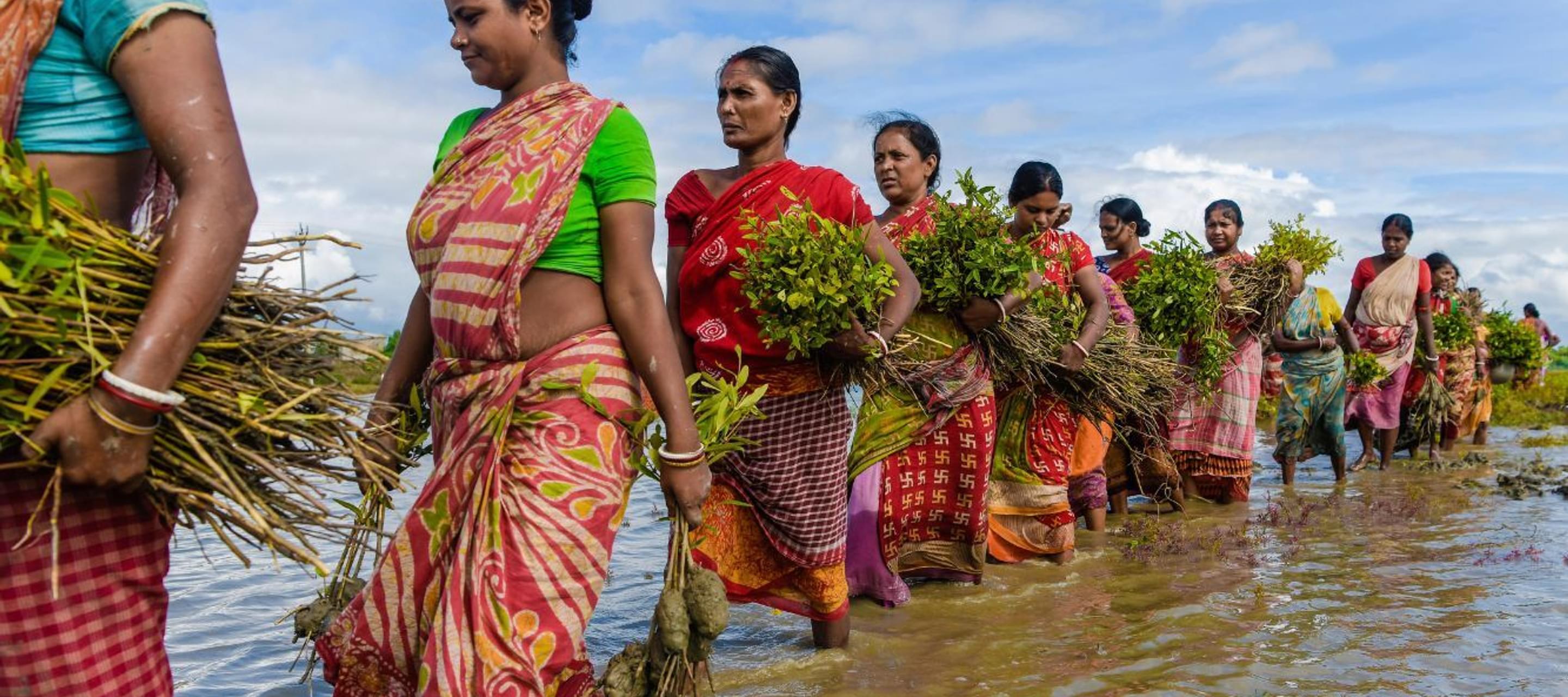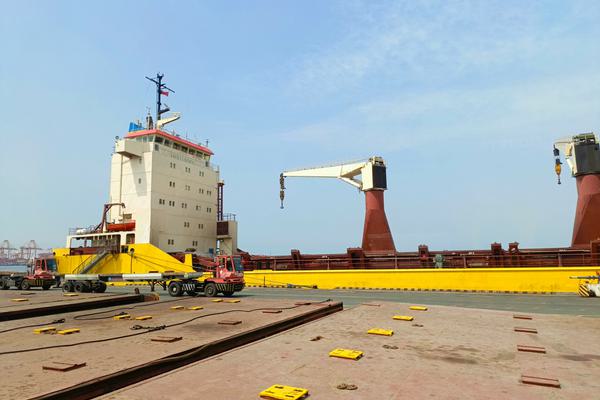Blue Forests and Ocean Equity Roundtable
17 April 2024

IHRB, Rafto, and the Norwegian Blue Forests Network hosted a roundtable during One Ocean Week to spotlight the human rights dimensions of blue forest loss and restoration, drawing on examples from Nigeria, India and Colombia and beyond, with human rights defenders bearing witness to the negative impacts of coastal habitat destruction from the Niger Delta in Nigeria to the coast of Kerala in India and the port of Cartagena in Colombia .

This was the first in a series of global dialogues over the next 2-3 years which will seek to bring affected rights-holders to the table with duty bearers – companies, finance, regulators - to better understand their respective roles and duties in conservation and restoration of blue forests, and remediation for existing harm. The aim is to build knowledge, momentum, partnership and leadership in ensuring sustainable blue forests are at the heart of rights-based ocean equity.
The meeting was held under Chatham House rule. Below is a summary of key discussion points.
Framing:
- There is an urgent need for a much greater focus on human rights and social impacts in the sustainable blue economy agenda. Without equity, there is no sustainable ocean economy.
- Blue forests are critical for a healthy ocean and for ensuring the right to sustainable coastal livelihoods, to food security and to access to a clean and healthy environment.
- We need to bridge the silos of separate discussions on environmental and social impacts of the blue economy. They are inextricably linked and must be informed by those working with communities (rights-holders) directly impacted by ocean economy activities from industrial fishing to port expansion to energy production and tourism.
- Learning from local knowledge, in particular from indigenous knowledge and science, is fundamental to achieving progress towards ocean equity.
- Partnership and collaboration between duty-bearers and rights-holders are also key to sustained progress.
- Ocean health and mental health are intimately linked. Need to move beyond seeing the ocean as another arena for extraction of commodities and commercial value which has led to massive destruction of coastal ecosystems and human health over decades. The Niger Delta exemplifies this where thousands of hectares of mangrove forests have been destroyed through oil spills and other damage from the oil industry. Crude oil suffocates mangroves, they will not recover without restoration intervention.
Everybody has the right to a safe life and without a clean ocean, we have no hope for life. When you destroy the ecosystem of a place, you destroy the culture of that place because you are stealing their stories…
Community engagement in coastal habitat restoration:
- Healthy ocean ecosystems provide coastal communities with food security, protection from erosion, tsunamis, climate change related adverse impacts etc.
- Traditional ocean-related occupations are related to different communities, eg. indigenous fishermen go further out to sea while indigenous women tend to do more seafood harvesting closer to shore eg. in mangroves.
- Industrial fishing bottom trawling has caused long-term destruction of the ocean floor, reefs etc. Severe impacts on biodiversity of artisanal fishing grounds.
- Similarly, port development has destroyed important reefs, affected long-shore drift and beach erosion patterns.
- Beaches are important cultural and spiritual spaces for many indigenous communities as well as providing primary working environments and public amenity spaces. Many coastal villages have lost significant amounts of beach and housing due to erosion patterns disrupted by major infrastructure developments eg. port development in Kerala and Tamil Nadu in India.
- The development of the Vizhinjam International Seaport since 2016 has led to the destruction of more than 10 rocky reefs and other fragile marine ecosystems:
- The 2004 tsunami did not impact some coastal communities in Kerala due to protection from the rocky reef ecosystem. In the same area, after commencement of port construction and destruction of the protective rocky reefs, the 2017 cyclone destroyed 300m of seawalls.
- The degradation of fragile marine ecosystems due to the Vizhinjam port construction means that artisanal fishers now have to go further offshore to fish and there has been a corresponding increase in loss of life among the fishers in less protected waters during cyclones.
- Fishing communities have born a disproportionate socio-economic and environmental burden of destruction of blue forests and other fragile coastal habitats by commercial activity. Coastal community representatives are rightsholders, not merely stakeholders, and they must be included in meaningful dialogue and ongoing consultation with government and companies.
- The expansion of shrimp farming in many coastal areas has caused serious pollution, damaging biodiversity and fragile marine habitats, again negatively impacting the right to livelihoods and a clean and healthy environment for coastal communities.
If you’re not at the table, you’re part of the menu.
- Remediating past human rights abuses and preventing future exploitation should be a collaborative process of trust-building, accountability and transparency.
- Companies across all sectors of the blue economy – shipping, ports, oil and gas, offshore wind, tourism, fishing and aquaculture, as well as blue finance – need to acknowledge their role in the degradation of coastal ecosystems and commit to meaningful dialogue with impacted communities for remediation, risk mitigation and prevention of future harm.
- If companies and governments are committed to a sustainable blue economy, there must be a more frank conversation with communities about their role in restoration of degraded coastal habitats where their commercial activities have played a part. CSR activities or blue carbon offset projects are not adequate and, in many cases, not appropriate to local needs.
- Traditional and indigenous knowledge and science must be considered in due diligence processes, data collection, feasibility studies and dialogue. ‘Ocean literacy’ must include indigenous knowledge.
Meaningful dialogue should be between two equal partners.
Market responses – the emerging blue carbon offset market:
- Although in its infancy, the blue carbon market is growing and already commanding higher prices than terrestrial carbon offset.
- There is no guarantee that the blue carbon market takes human rights into consideration, albeit a number of ‘CSR’ initiatives eg. supporting local schools etc, have been undertaken in some projects.
- There is an urgent need for dialogue around how the blue carbon market can avoid what has happened in many cases in terrestrial carbon offset in terms of land/ocean grab and lack of community consultation, engagement, or financial benefit.
- The issue of how blue finance can be a stronger driver for ocean equity could be an important topic for dialogue at the UN Ocean Blue Economy and Finance Forum in Monaco, June 2025, part of the UN Ocean Conference in Nice, co-hosted by Frances and Costa Rica.
- Blue carbon offset such as planting of mangrove forests is controversial and needs to be very carefully considered. It is seen by many as allowing companies to continue to pollute and emit greenhouse gases. Nevertheless, the blue carbon market is growing and presents significant human rights concerns around greenwashing, the risk of land and ocean grab, potential displacement of communities as seen in Pakistan.
- There are some examples of ‘community-based carbon offset projects’ where the community has received upgraded school facilities, schoolbooks etc. but this is CSR rather than community benefit-sharing of revenue. The level of community consultation and dialogue in these cases is not clear.
- Project approaches vary from Madagascar to Senegal, Indonesia to Kenya and Tanzania. The key question throughout is ‘who benefits financially?’ and are there negative socio-economic or human rights impacts on local communities?
- There needs to be greater environmental and social/human rights due diligence by blue finance and companies into blue carbon offset schemes with a much stronger emphasis on genuine consultation and meaningful dialogue with affected communities. Equitable benefit-sharing with communities may drive carbon offset prices higher.
- Important to challenge any greenwashing by companies whereby they claim that financing the planting of mangrove forests automatically equates to a contribution to a sustainable ocean and ocean equity. While blue forest restoration is critically important, it must be done in consultation with and with the agreement and participation of affected local communities and rights-holders.
Ocean equity has to be built on trust, meaningful dialogue and accountability. The voice of the community cannot be muted.
Context
We are facing a triple planetary crisis: climate change, biodiversity loss, and pollution. Blue forests (kelp, rockweed, seagrass, saltmarshes, mangroves) help to address this crisis by capturing and sequestering carbon, nurturing marine biodiversity, improving water quality, and shielding coastal communities from erosion, storms, and flooding. Yet globally these ecosystems are declining at an alarming rate with severe impacts on coastal communities dependent on these habitats for their life and livelihoods.
Indigenous artisanal fishing communities are among those most vulnerable to the harmful impacts of coastal habitat destruction yet are routinely excluded from decision-making. Their livelihoods and food security rely on healthy ocean ecosystems, and cases of disruption and loss of livelihood abound globally. Commercial activities such as port development, energy infrastructure, aquaculture, commercial fishing, shipping, hotel resort expansion have all contributed significantly to the destruction of blue forests globally.
“When mangrove forests are destroyed, much more than trees suffer. Many endangered species depend on mangroves for their habitat, and millions of coastal fisher-people and farmers are also negatively impacted. Indigenous communities have developed close relationships with mangroves and have stewarded millennia-old Indigenous Knowledge in their protection, management, and sustainable use.” Indigenous Stewardship Brings Restoration of Mangroves report 2022, Cultural Survival
Boosting Ocean Equity
The High-level Panel on Ocean Equity notes that ‘access to ocean resources and sectors is rarely equitably distributed. Many of their benefits are accumulated by a few, while most harms from development are borne by the most vulnerable. Inequity is a systemic feature of the current ocean economy. It is embedded in existing political and economic systems, the result of historical legacies and prevailing norms. This has brought global environmental challenges and negative effects on human well-being. Although legal frameworks partially exist to support equity, they are not sufficiently developed. In practice, ocean policies are largely equity-blind, contributing to current patterns of inequity. Addressing existing inequalities, preventing the widening of ocean inequities, and promoting equity, both within and between countries, is integral to a sustainable ocean economy.’
The Norwegian Blue Forests Network makes it clear that ‘the conservation, restoration and the sustainable management of coastal areas are essential for reducing the global climate footprint and maintaining biological diversity’. Securing sustainable livelihoods for coastal communities is an integral part of a sustainable and equitable ocean economy.



